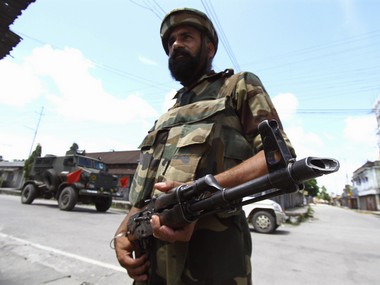In recent years, India has increasingly made its ‘Cold Start’ doctrine public, and the strategy assumes significance in the backdrop of the terror attacks at Uri and Pulwama. In 2017, Indian Army Chief
Bipin Rawat had acknowledged in an interview the existence of the ‘Cold Start’ military doctrine, which is essentially a limited-war strategy designed to launch a strategic counter-attack in Pakistani territory swiftly without, in theory, risking a nuclear escalation. [caption id=“attachment_5309321” align=“alignleft” width=“380”] Representational image. Reuters[/caption] The strategy has its roots in the aftermath of the attack on Parliament in 2001. After the attack, by the time India’s ‘Strike Corps’ were positioned on the border, Pakistan had already consolidated its defence. This would have raised the costs of an incursion and would also have increased the risk of nuclear retaliation, as an article in The Economist points out. ‘Cold Start’ is, therefore, an attempt to draw lessons from India’s previous experiences of dealing with terrorism. The recent terror attacks in Uri and Pathankot have also underlined the urgency of having an effective response to a terrorist attack that takes place with tacit backing from across the border. Under the doctrine, eight smaller division-sized battle groups combine mechanised infantry, artillery, and armour, as noted in an article in Russia Beyond. ‘Cold Start’ is aimed at paralysing Pakistan’s response as the battle groups are trained to enter its territory within 72 to 96 hours from the time the order to mobilise is issued. However, a
Harvard paper on ‘Cold Start’ argues, “As the Indian military enhances its ability to implement ‘Cold Start’, it is simultaneously degrading the chance that diplomacy could diffuse a crisis on the subcontinent." In response to the doctrine, Pakistan has developed short-range nuclear weapons, its former prime minister Shahid Khaqan Abbasi said last year. “We have developed short-range nuclear weapons as a counter to the Cold Start doctrine that India has developed. Those are in the same command-and-control authority that controls the other strategic weapons,” Abbasi had said in response to a question at the Council on Foreign Relations, a top American think-tank. He had further said, “We have a very robust and secure command-and-control system over our strategic nuclear assets. Time has proved that it’s a process that is very secure. It’s a process that has complete civilian oversight through the Nuclear Command Authority.” With inputs from PTI
‘Cold Start’ is aimed at paralysing Pakistan’s response as the battle groups are trained to enter the Pakistani territory within 72 to 96 hours from the time the order to mobilise is issued.
Advertisement
End of Article


)

)
)
)
)
)
)
)
)



